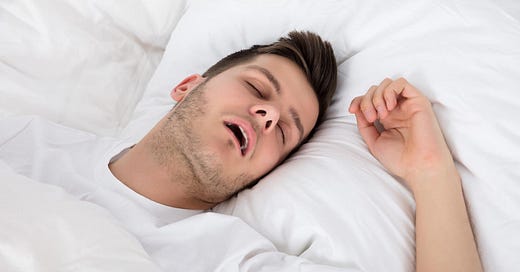Optimising Sleep for Lifelong Health and Longevity
When it comes to de-risking nearly every disease it’s difficult to find anything as crucial as sleep. Nutrition and exercise matter, but sleep is the foundation on which those two other things sit.
Why do we sleep?
For most of my life, sleep felt like an indulgence, a luxury I couldn't afford. Society painted sleeping as laziness — the opposite of productivity. And I bought into that narrative. In fact, over the past 70 years, people in the Western societies lost about 20-25% of their daily sleep. Imagine losing that same percentage of oxygen; we’d be gasping for air. Yet somehow, we think it's okay to do the same with sleep.
I wasn’t always aware of how much I was sacrificing. During and after medical school, I was determined to push myself to the limits. During most of my weeks in the hospital, I slept for less than 24 hours a week (averaging just above 3 hours of sleep per day). I was surviving on willpower and caffeine, telling myself, “I’ll sleep when I retire.”
It wasn’t until the final years of my specialty training in ENT Surgery that my attitude towards sleep began to shift. Some surgical interventions are designed to treat certain sleep disorders; I got hooked into understanding sleep and sleep disorders. I have experimented with various sleeping schedules (polyphasic sleep)1, practiced numerous ways of maximising sleep efficiency, and learning to fall asleep within seconds of closing my eyes (regardless of my surroundings).
I have learned quickly that sleep is evolutionarily programmed. There is a very important reason why humans are required to spend almost a third of their life sleeping. Sleep serves a very important purpose.
It took me a while to understand the above. Evolution wouldn’t dedicate such a significant part of our lives to something trivial. Sleep wasn’t my enemy; it was the key to vitality, to health, to longevity.
Sleep is the foundation of health
When it comes to de-risking nearly every disease plaguing us in the developed world, it’s difficult to find anything as crucial as sleep. Nutrition and exercise matter, but they don’t hold the same weight without the foundation that sleep provides.
I used to think of sleep as just one of the three pillars of health, alongside diet and exercise. Sleep, however, is the foundation on which those two other things sit.
Repeat after me: Sleep is not the third pillar of good health—it is the foundation.
Take a look at this study by Eve Van Cauter: just four days of sleep restriction (4.5 hours per night) led to insulin resistance in fat tissue of healthy adults.
Without proper sleep, nutrition and exercise are like building a house on quicksand. You may try your hardest to stay fit, eat right, and ward off disease, but if you neglect sleep, the ground beneath you starts to give way. Sleep isn't just restorative; it’s the bedrock of longevity, the cornerstone of health.
How long can you survive without sleep?
While someone might survive over a year without food (the record is an astounding 382 days), going without sleep is far more deadly. Reports suggest previous attempts reached up to 24 days without sleep, but the consequences are horrific—cancer, cardiovascular disease, metabolic syndrome, mental health issues, even suicidality.
The speed at which health deteriorates without sleep is alarming. It’s more than just feeling tired—it's your body screaming for survival.
You will find detailed information about sleep, sleep optimisation, sleep solutions, sleep and dieting, as well as validated sleep assessment guides below. Let’s dive in!
Keep reading with a 7-day free trial
Subscribe to Solutions Manual to keep reading this post and get 7 days of free access to the full post archives.




